
views
Building Basic Skillsets
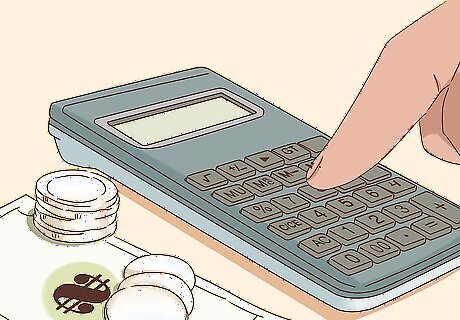
Learn how to budget. One of the most fundamental skills of life is budget management. If you manage your budget poorly, you will struggle to make ends meet and may even have to borrow money from others. However, if you manage it well, you will be aware of your spending, reach your financial goals and be financially independent. Take some time to make a budget of all of your necessary expenses each month and try to honor that budget by not spending more than those amounts. Also, allocate a certain percentage of any money you earn or receive each month to put in your savings. You can do this manually or by using an app. It is important to develop a spreadsheet for your expenses and income. You can do this manually with a program like Excel, or you can use a special software. You can also use websites like LearnVest to set goals and track your spending. Make sure you are spending less than you make.
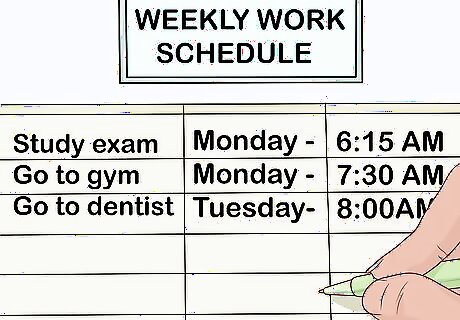
Develop time management skills. Another necessary skill is knowing how to properly manage your time. There are only a certain amount of hours in each day so use your time wisely and don't squander it on unnecessary or unfulfilling activities. Write out a schedule for your week including any necessary tasks or projects and devote any extra time to leisurely activities. You can use a planner to keep track of all of your classes or meetings as well, or you can use an online calendar through Google and set up reminders. Include deadlines for important tasks and goals. Make sure you are able to wake yourself up on time every morning without having to be told. Set alarms on your phone or purchase an alarm clock. Give yourself some extra time between tasks to get everything done. For example, if you expect that a task will take you an hour, give yourself an hour and 30 minutes to complete the task. This is also a good way to improve your chance of being on time for appointments. Be flexible. Keep in mind that despite your best efforts, things may still not go as planned. Remember that everything will be okay if you are late now and then or if a task takes you longer than you thought it would.

Practice healthy eating. Another necessary step in building your life skills is to be able to choose healthy foods. Make sure that you are choosing foods that are nutritious in nature, like whole fruits and vegetables, whole unrefined grains, beans and legumes, and lean protein. Avoid overeating by controlling your portion sizes. If you still live at home, and your parents cook very unhealthy meals for the family, then you might ask them if they can try to cook at least one vegetable per meal. Or better yet, try to be a role model for your family by offering to cook healthy meals for them. Choose the healthiest options for food at lunch. Cut down on foods that are fatty and opt instead for fish and grilled or baked chicken. Drink water instead of soda or other sugary beverages.

Learn to cook for yourself. Though you may not always have control over the options presented to you for lunch during school or even for dinner at night if your parents cook, you can learn to make some things for yourself. This will allow you to take control of your diet and makes things that will be good for your body. The better you become at cooking, perhaps the more often you will be able to cook for your family or others. Start off with the basics - don't begin by cooking complicated meals. Try making some meals that just have a few ingredients. Make a basic salad for yourself or bake some chicken. You can also purchase frozen vegetables which are easier to cook than those which have had no preparation.
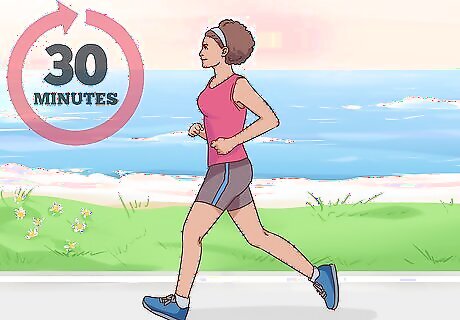
Exercise to keep yourself fit. Stay active as well by working out two to three times a week. Put it in your schedule each week so that you don't forget. Determine if working out in the morning or after school or work is best for you. Consider working out with a friend or family member to help keep yourself motivated. If you can't get to the gym, take a walk around the block for 30 minutes or so everyday. You can also YouTube some exercises so that you can do them from home.

Learn how to clean for yourself. It is important that you know how to wash your own clothes and keep a clean room. Read the instructions on your clothes before washing them so you know what temperature water to use and how to dry them. Clean up your room everyday so it never gets messy and stays neat. Consider setting up a cleaning schedule for your room. For instance, you might dust your room on Mondays, vacuum on Tuesdays, etc.

Do things without having to be told. Another step in building life skills is taking initiative in completing tasks. The true marker of adulthood is being a person who takes responsibility and who goes beyond those responsibilities to help others. If you see a friend or family member struggling, do what you can to assist them and alleviate that burden. For instance, if your mom has just come home from work and has groceries in the car, go and help her without her having to ask. Help your friends should they need tutoring in class that you are doing well in.

Learn how to make appointments and order for yourself. If you are a child or even a young adult, your parents may do all of the appointment making for you and may also still order your food at restaurants. However, the day will come when they will not be available to do these tasks for you, so you must know how to do them on your own. Next time you have to make an appointment, ask your parents if you can do it for yourself. Practice ordering food by ordering for your family next time you are at dinner.
Developing Critical Thinking Skills

Think for yourself. Perhaps the most important critical thinking skill that exists is being able to think and make decisions independently of others. Though you should certainly heed the advice of others that are wiser than you, at the end of the day, it is your life to live and you have to make peace with that. Don't allow your friends to tell you how to feel or what to do. Make sure that you listen to your parents and heed their instruction, but also note that you don't have to do everything they say. You should keep your grades up and your room clean, but they can't tell you where to go to college or where to work after graduation. You can be respectful while still making major decisions about your life.

Consider the perspective of others. Another skill necessary in critical thinking is to think beyond yourself. If in developing a plan that will affect other people and you do not consider those people, then you are not thinking critically about the issue. When making a decision that will not affect only you, put yourself in the shoes of others so that you can identify a plan that will work for all. For instance, if you are considering quitting your part time job because you don't get along with a coworker, think about how this will affect your family and your other coworkers, as well. Though you may be happy temporarily, you will also have to ask your parents for money more often, which will likely stress them out.

Consider the consequences of your actions. Remember that every action, even a small one, has a reaction. It is imperative that you consider the potential effects of any decisions that you plan to make so that you make the decision that will be best for you. Consider making a pros and cons list before making major decisions.

Do your research. A major part of developing this critical thinking skills is by doing your research on any topic or issue that you are interested in. In this age of technology, information is literally at your fingertips. Take advantage of it and expand your knowledge by researching topics of importance to you, as well as finding out about opinions that are not in line with your beliefs. The more you know about different perspectives, the better able you will be to make decisions and develop your own opinions and understanding of other people's opinions. One way to do this is to simply google information you are interested in. For instance, if you want to know more about a certain war or country, google it and read a few articles about it. Read the news in as unbiased a way as possible. Rather than relying on one news source, consider reading several different ones on the same topic so you don't gather a biased perspective.
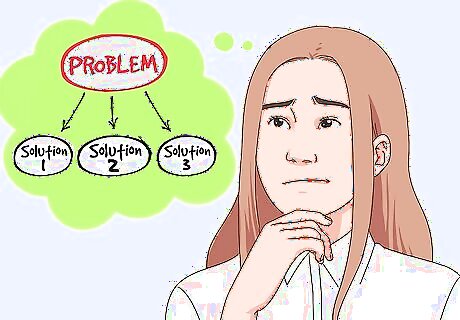
Try to solve a problem without asking for help. Another way to develop your critical thinking skills is by problem solving. If you are accustomed to asking your parents or friends for help with certain things, try to instead solve the problem yourself sans advice. Take some time to first identify the issue, consider several possible solutions, and then select and execute the solution that you think is best. For instance, as a very basic example, if you typically ask your dad for help getting something off of a top shelf that you can't reach, consider ways that you could get the item yourself, like using a chair to elevate yourself.

Keep your mind active. In order to make sure your mind is working at maximum capacity, you must exercise it and keep it active just as you would your body. Read as much as you can to develop your mind. You can also do things like playing board games with your family and friends, or downloading strategy or logic games to your phone and playing them throughout the day to keep your mind going. Journal out your thoughts at the end of each day to keep your mind sharp, as well. Read books on all kinds of subjects! Read fiction and non-fiction books to expand your knowledge, spark your imagination, and build your vocabulary. Try reading from genres that interest you, such as sci-fi, fantasy, nature, astronomy, biography, and anything else that sounds like a fun read to you! Consider also carrying around sudoku or crossword puzzles in your bag.
Building Professional and Academic Skills

Identify a mentor. A mentor can help guide you professionally, academically, and socially. Consider people you know whose career or academic paths are similar to something that you would want for yourself and reach out to them. This person will be able to give you unique and productive advice on how to achieve your goals. You can reach out to this person by saying something like “I really admire your work ethic and I want to have a career similar to you one day. I was wondering if you would consider being my mentor.”

Develop academic/professional goals. It's important that, as you are developing as an adult, that you are making plans and setting goals for your life and finding ways to achieve them. You should set short-term and long-term goals so that you can begin to see the fruits of your labor immediately while working towards achieving your more difficult goals as well. Write these goals down and identify concrete ways to achieve them. For instance, if you want to get all A's this semester, then you will need to devote time everyday to doing your homework, studying and maybe staying after school.

Learn to write well. One other critical life skills is the ability to articulate yourself well on paper. Pay particular attention in your English classes so that you learn proper grammar and spelling. Read more books and articles to expand your vocabulary.
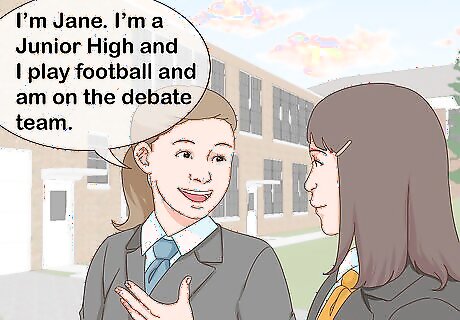
Speak articulately and thoughtfully. When you speak, people should feel that you are self-assured and that you know what you are talking about. Use proper grammar in formal settings like work or school and look people in the eye when you speak to them. This conveys confidence. Develop an elevator speech. An elevator speech is a 20-30 second introduction to someone that is short but attention grabbing. You might say something like “Hello, I'm Devin. I'm a Junior at West End High School and I play football and am on the debate team.”

Learn how to advocate for yourself or your cause. A life skill that will take you far in your career, your social life, and even with your family is the skill of self-advocacy. You cannot rely on others to defend you or to defend things that are important to you; you must do that yourself. If you feel attacked or misunderstood, take a few moments to direct the conversation towards that. Let the person you're speaking with know how you feel and clearly articulate why. You will gain respect and be understood. For instance, if after a group project, one of your group members says that you did not help the group, but you know that you did, you should correct them. You can say something like “I feel that you saying that I didn't help is incorrect. I wrote three pages of the report and helped build the model. I contributed to the group just as much as you did.” Don't let people run all over you; make sure that you defend yourself.

Ask questions. Remember that you don't know everything. Questions are a critical and necessary aspect of life as an adult and can assure that you operate based on knowledge and facts rather than assumptions. Should you ever have a question about something that you cannot research on your own, ask. This will provide you the clarity you need. For instance, if your teacher makes a confusing comment in class, they may not even notice it. Ask for clarification.













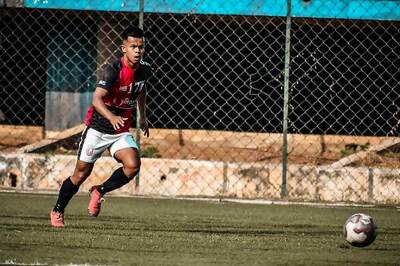





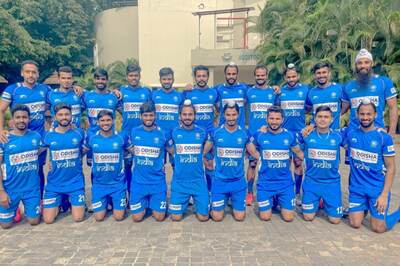
Comments
0 comment